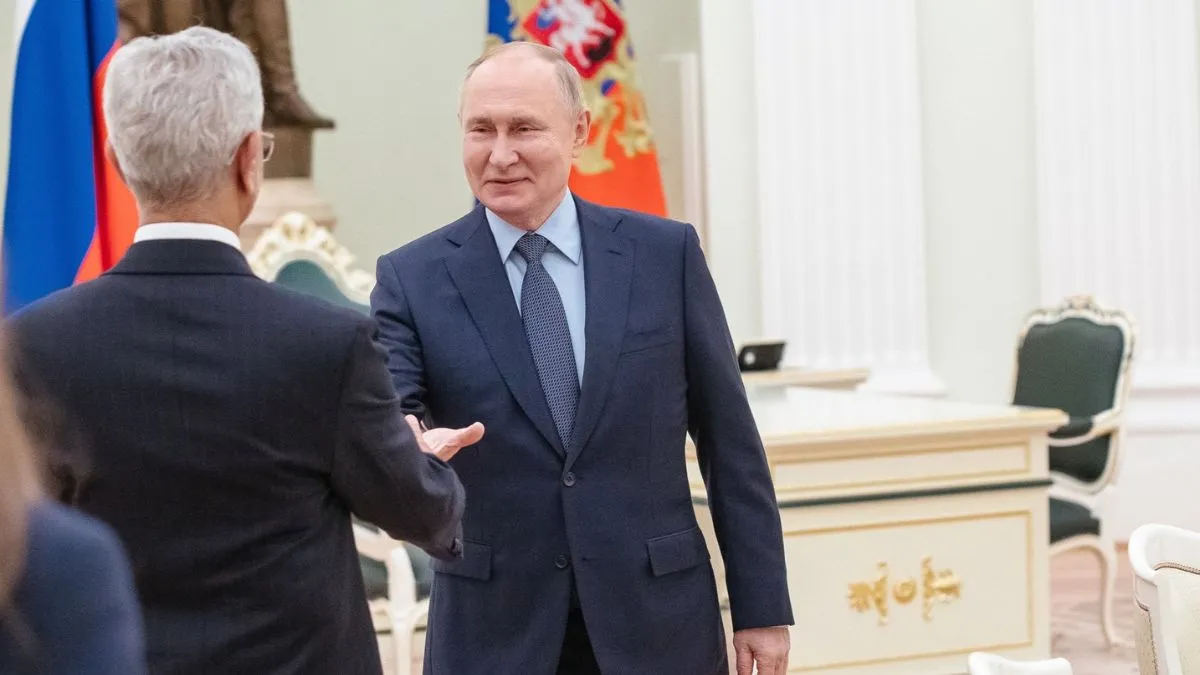- By Ajeet Kumar
- Tue, 19 Aug 2025 03:47 PM (IST)
- Source:JND
External Affairs Minister S Jaishankar on Tuesday embarked on a three-day visit to Moscow to further strengthen the "time-tested" India-Russia partnership. The visit comes against the backdrop of strains in India's ties with the US following President Donald Trump doubling tariffs on Indian goods to 50 per cent, which included an additional penalty of 25 per cent for purchasing Russian crude oil.
Jaishankar flew to Moscow hours after concluding a back-to-back meeting with his Chinese counterpart Wang Yi, where he discussed border issues and gave a much-needed push to India-China trade relations. Notably, India has tactically shifted the global order by increasing engagement with Beijing— a silent move to counter Trump’s tariff war.
Why is Jaishankar visiting Russia?
The Ministry of External Affairs (MEA), announcing Jaishankar's trip, said he will co-chair the 26th Session of the India-Russia Inter-Governmental Commission on Trade, Economic, Scientific, Technological and Cultural Cooperation (IRIGC-TEC) to be held on Wednesday.
The external affairs minister and Russia's First Deputy Prime Minister Denis Manturov are set to co-chair the IRIGC-TEC that is expected to lay the ground for President Vladimir Putin's visit to India later this year.
ALSO READ: Putin Holds High-Level Talks With NSA Ajit Doval In Moscow Amid Trump's Tariff Hike | WATCH
Jaishankar and his Russian counterpart Sergey Lavrov are also expected to discuss the latest initiatives by the Trump administration to bring peace to Ukraine. During the visit, the external affairs minister will review the bilateral agenda and share perspective on regional and global issues with the Russian foreign minister, the MEA said in a brief statement.
"The visit aims to further strengthen the longstanding and time-tested India-Russia Special and Privileged Strategic partnership," it added.
Why is Jaishankar's visit crucial for India
It is expected that the two sides will also deliberate on India-Russia energy ties during Jaishankar's trip to Moscow. US President Trump this month issued an executive order slapping an additional 25 per cent tariff on Indian goods as a penalty for New Delhi's continued purchase of Russian oil. Defending its purchase of Russian crude oil, India has been maintaining that its energy procurement is driven by national interest and market dynamics.
India turned to purchasing Russian oil sold at a discount after Western countries imposed sanctions on Moscow and shunned its supplies over its invasion of Ukraine in February, 2022. Consequently, from a mere 1.7 per cent share in total oil imports in 2019-20, Russia's share increased to 35.1 per cent in 2024-25, and it is now the biggest oil supplier to India.
India's Ukraine war diplomacy
During Jaishankar's visit to Moscow, the two sides are also likely to deliberate on the Ukraine conflict. India has been consistently calling for an end to the Russia-Ukraine conflict through dialogue and diplomacy. In July last year, PM Modi travelled to Moscow and told Putin that a solution to the Ukraine conflict is not possible on the battlefield and peace efforts do not succeed in the midst of bombs and bullets.
The next month, PM Modi visited the Ukranian capital city of Kyiv and conveyed to President Volodymyr Zelenskyy that both Ukraine and Russia should sit together without wasting time to end the war.
(With inputs from agency)
